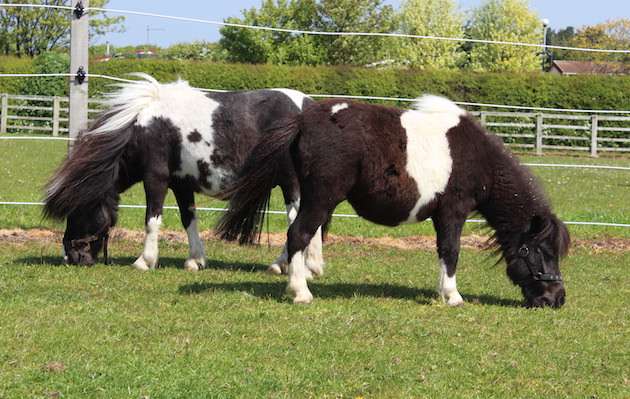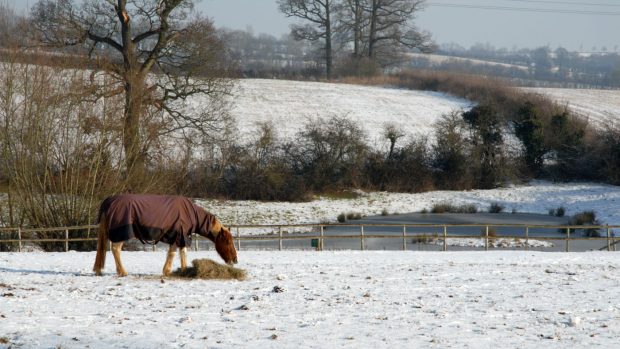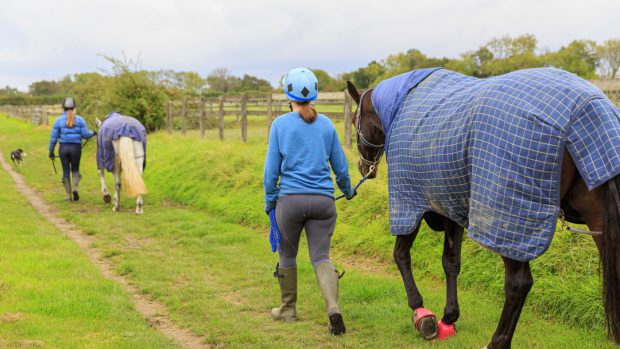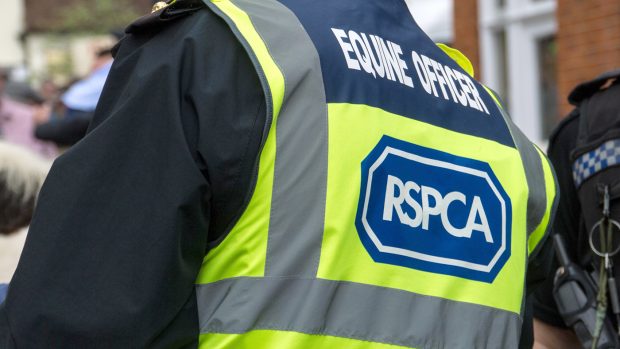A former parish councillor whose ponies were found “wading in faeces” has been given a tougher sentence after she appealed her conviction.
Amanda Munro, of Rakehill Road, Scholes, appeared at Leeds Crown Court last week (2-5 January), when a judge upheld her convictions for causing unnecessary suffering to three Shetland ponies and failing to meet the needs of a goat.
Last May, Munro, a parish councillor at the time of the offences, was banned from keeping equines and goats for life and given a 12-month community order, with 200 hours’ unpaid work, and ordered to pay £500 costs and an £85 surcharge.
Originally, it was ruled that she could not appeal the ban for five years but on re-sentencing on 9 January, the judge increased this to seven years and ordered her to pay £3,250 costs.
RSPCA inspector Carol Neale said the three Shetlands, who were mother, father and foal, were all “very thin and suffering”.
“The conditions they were living in were simply disgusting,” she added. “They were literally wading in faeces; it was that bad, just a stone’s throw from Munro’s home.
“The goat was housed in a building on the same field. When we attended he was shut in there alone with no access to food or water, and had overgrown hooves. All we could hear when we were dealing with the ponies was the goat calling to us from a tiny window. Munro said the door had jammed so she couldn’t get inside, and we had to break it down to get to him.”
The animals were removed on veterinary advice on 16 December 2016, following advice from World Horse Welfare on 25 November which had not been acted on, and taken into the charities’ care.
World Horse Welfare field officer Sarah Tucker said she was happy with the outcome to a long case.
“These three ponies were living in totally inadequate conditions, the foal was hypothermic and all of them were very thin,” she said. “When I attended, the three of them were all huddled in a corner looking dull and lethargic.
“In winter, mud is inevitable, but no attempt was made to make a dry standing area or to make the environment clean or inviting for the ponies.
“None of the ponies were receiving adequate nutrition and the mare, who was feeding her foal, was struggling to keep both of them alive.
“This situation could have been easily rectified by providing good quality food and a clean living environment.”

The ponies have stayed with World Horse Welfare and the goat in the RSPCA’s care pending the outcome of the case. All have recovered fully and new homes can now be sought for them.
Munro told H&H she had been advised not to comment on the legal aspects of the case.
Continues below…

Life ban for man who left horse to die ‘agonising death’ *warning: upsetting image*
'There were signs to suggest he had struggled in his last few days. A pile of faeces under his tail

Man banned from ownership after horses found in ‘utterly appalling’ conditions
The man was found guilty of causing unnecessary suffering to a mare and two fillies

Charity finds nearly 40 mules abandoned in a brick kiln
Staff working with The Brooke discovered the equines struggling for survival during an inspection of the kilns in Nepal
“The only comment that I do wish to make is that these Shetland ponies wintered out in the wettest December recorded,” she added “They were wet ponies in a wet field with access to a field shelter. [The charities’] information indicated that the stallion seized weighed only 3kg more in December 2016 after 12 months in their care. If that pony had poor body condition on seizure then it had poor body condition after 12 months in RSPCA care. So if 91kg in winter 2015 meant an offence of causing unnecessary suffering had occurred , how can the same not be true of the weight loss in the period when it was fully under the care and control of the RSPCA?
“These were wet ponies following a natural cycle of weight gain on summer grass and a drop in condition in winter.”
For all the latest news analysis, competition reports, interviews, features and much more, don’t miss Horse & Hound magazine, on sale every Thursday.





